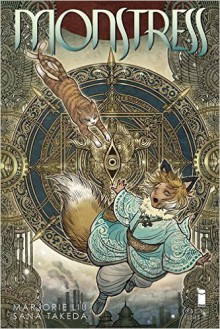
[I received a copy of this book through NetGalley, in exchange for an honest review.]
The theme of this book was definitely scary, in that it’s not something that can never happen—it has happened in the past already, and anyone who’s studied history a little, and/or gotten interested in studying extremist movements, will know very well that even an apparently “balanced” society can give way to extreme rules, to persecuting people, and to turning your average citizen into an “I was just doing my job” person.
The story echoes the internment of many Japanese-descent American citizens during World War II, often considered as “enemies of the nation” and interned as “potential dangers”. There is no World War here, “only” the aftermath of 9/11 and growing fears of terrorism, with people being so afraid of a fringe of Muslim people that they lump all Muslims in the same basket, starting with a religion census, then moving to curfews and the burning of books. Also, the parallels drawn with early 21st century US politics are obvious (although this is not limited to the USA)... perhaps a little too much. Which leads me to what was my main beef with the book: it makes everything too obvious.
Don’t mistake me: the message IS really important, and there’s no way any decent society should let something like this happen (again). However, I often found that it was hammered through and through, and that overall, more subtlety, and a more mature treatment of it all, would’ve been welcome. It’s a little as if too much repetition, too much obviousness, weakened the message by making it tiresome, in a way. (I’m not sure if I’m explaining myself very well here. It was difficult to properly put my finger on what had been nagging me throughout my reading.)
A few other things annoyed me, too. The writing itself was fairly simplistic, with Layla’s thoughts often circling around the same things (like her boyfriend), and in general, there wasn’t really any explanation about how things came to be. I could fill in some blanks because I know my history, but more background details about the escalation of Islamophobia leading to the internment camps would’ve been great (and would’ve helped to strengthen the message)—just like it would’ve been good to see more chemistry when relationships were involved. For instance, Layla and David: we don’t get to see them together enough in the beginning to get a feeling for their relationship, and this makes it hard to really empathise with their obsession to see each other (even though doing so endangers pretty much everyone: David, Layla, his family, her family, the people who help them…).
The same goes for those people who are on the Muslims’ side: with everyone at the camp cut from the outside world, with no real news, no phones, no internet allowed, whatever happens outside is learnt through third parties. We don’t really -see- those reactions, we don’t get to read the texts that Layla manages to smuggle outside and that inspire people, etc. And most characters’ motivations are never really explored. Why is the Director such a cartoonish villain? What motivates the guards who try to help? What motivates (or threatens) the minders turned traitors to their people?
The ending, too, was… conveniently simple. And got rid of one specific plot point that otherwise would’ve needed more explanation. That was very predictable… and very frustrating.
Conclusion: I definitely agree with the message here, but as a novel, it didn’t really work for me.



 Log in with Facebook
Log in with Facebook 













